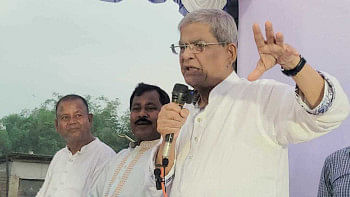Lower investment for education and health care in Bangladesh
Bangladesh ranks 161st in the world for its investments in education and healthcare as measurements of its commitment to economic growth, according to the first-ever scientific study ranking countries for their levels of human capital.
The nation placed just behind Djibouti (ranked 160th) and just ahead of Togo(162nd). The United States ranked 27th, while India placed 158th.
Bangladesh's ranking of 161st in 2016 represents an improvement from its 1990 ranking of 170th. It comes from having six years of expected human capital, measured as the number of years a person can be expected to work in the years of peak productivity, taking into account life expectancy, functional health, years of schooling, and learning.
Overall, Bangladesh residents had 41 out of a possible 45 years of life between the ages of 20 and 64; expected educational attainment of eight years out of a possible of 18 years in school; and a learning score of 69 and a functional health score of 48, both out of 100. Learning is based on average student scores on internationally comparable tests. Components measured in the functional health score include stunting, wasting, anaemia, cognitive impairments, hearing and vision loss, and infectious diseases such as HIV/AIDS, malaria, and tuberculosis.
The study, "Measuring human capital: A systematic analysis of 195 countries and territories, 1990 to 2016," was published in the international medical journal The Lancet. It is based on a systematic analysis of an extensive array of data from numerous sources, including government agencies, schools, and health care systems.

 For all latest news, follow The Daily Star's Google News channel.
For all latest news, follow The Daily Star's Google News channel. 



Comments